‘I Wanted To Protect Donald Trump’: National Enquirer Publisher Describes How He Bought and Buried Stories From Porn Star and Playboy Playmate
David Pecker testified that he also bought and buried stories from women making accusations against Arnold Schwarzenegger when he was running for governor.
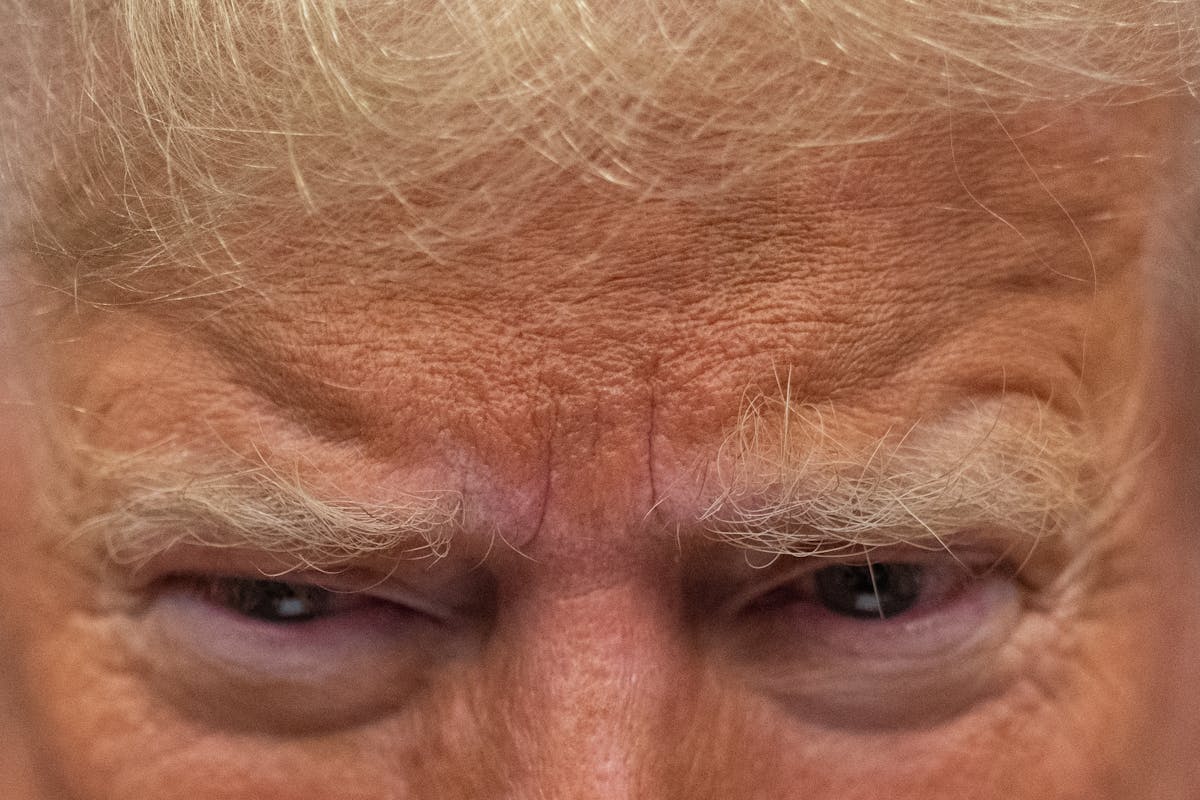
At President Trump’s hush-money trial, the first witness, the former publisher of National Enquirer, David Pecker, under direct examination from prosecutors, detailed how he buried Playboy Playmate Karen McDougal’s allegations that she had an affair with Mr. Trump, in order to prevent her salacious story from harming his 2016 election campaign, and how he thought that the porn star Stormy Daniels’ claims of a sexual encounter with Mr. Trump were true. But then the defense began to question him, pointing out errors in what had first seemed to be a solid story.
In June 2016, Mr. Pecker testified, his then editor in chief, Dylan Howard, approached him with a story about Ms. McDougal, Playboy’s Playmate of the Month for December 1997 and Playmate of the Year for 1998, who claimed to have had a nine-months long affair with Mr. Trump in 2005 and 2006. Ms. McDougal wanted to make money from her story, and the Enquirer is one of the few American media outlets that pays sources directly for stories.
When an Enquirer reporter experienced in tabloid negotiations spoke to Ms. McDougal, he found that her allegations “could be true, but she didn’t have any corroborating evidence,” Mr. Pecker told the jury, adding that Mr. Howard found her to be “a 12 out of 10″ In terms of credibility.
Rather than move to publish the story, Mr. Pecker immediately informed Michael Cohen, Mr. Trump’s then lawyer, and “fixer”, as described by the prosecution, who is currently Mr. Trump’s hated nemesis.
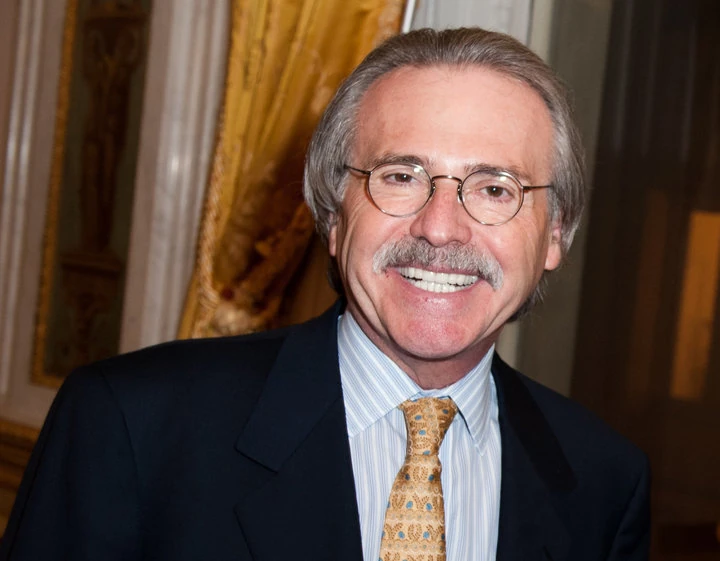
Mr. Pecker said Cohen told him, “You should go ahead and buy this story.” The 72 year-old man wore a dark blue suit, a pink shirt and bulky red tie. His white gray hair was slicked back.
“So I said to him … ‘Who’s going to pay for it?'” Mr. Pecker continued, and Cohen allegedly replied, “‘Don’t worry, I’m your friend, the boss will take care of it.'” The boss he referred to was Mr. Trump.
On Tuesday, Mr. Pecker testified that he, Mr. Trump and Cohen had a meeting in 2015 and decided to use the Enquirer and its powers to help Mr. Trump in the election. Mr. Trump and Mr. Pecker were longtime friends and sometime business partners, going back to the 1990s. Mr. Trump, a master of the tabloid news cycle, would often feed Mr. Pecker stories about his hit NBC show “The Apprentice”.
Mr. Trump sat inside the courtroom, listening attentively. In the morning, he had told court reporters that “New York isn’t traditionally won by Republicans anymore. It used to be 50 years ago, but not anymore. And I think we have a good chance of winning New York.” He seemed optimistic and re-energized by the city he was born and raised in. “We are going to give it a big play. We’re going to the South Bronx for a rally. We’re going to be doing a rally at Madison Square Garden… honoring police and honoring the firemen and everybody. A lot of people, including teachers – we’re honoring teachers… and we’re very excited.”
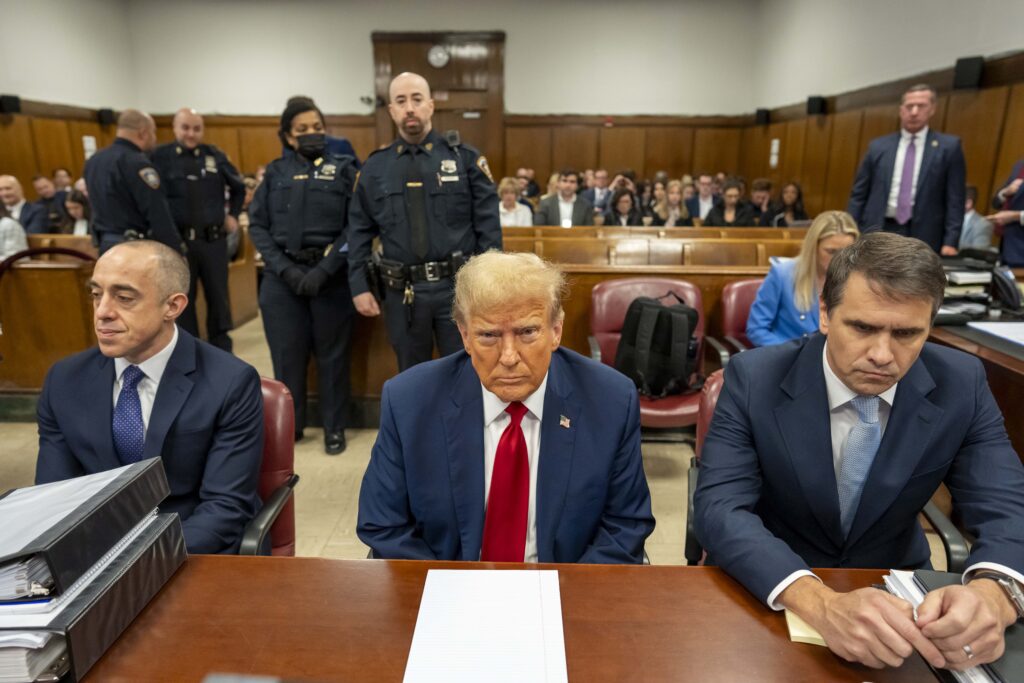
But inside the courtroom, his former friend and collaborator, Mr. Pecker, continued telling of his efforts to influence the 2016 election on Mr. Trump’s behalf. According to Mr. Pecker, Mr. Trump called him and asked about “a Mexican group”. There was a group in Mexico, he worried, who were offering Ms. McDougal $8 million for her story. Mr. Pecker advised Mr. Trump to purchase the rights to her story because he believed the story could be “embarrassing” to Mr. Trump and “his campaign.”
According to the testimony, Mr. Trump then told Mr. Pecker that he “doesn’t buy stories because ‘it always gets out.’” But Cohen phoned Mr. Pecker back later and directed him to get the rights to Ms. McDougal’s story, and that “the boss would take care of it.” Mr. Pecker understood this to mean that Mr. Trump would pay him back.
“To purchase the lifetime rights to Karen McDougal was going to cost $150,000. Plus, Karen wanted to restart her career. She wanted to write for the celebrity magazines. She wanted to be on the cover of the life and fitness titles. She had a major problem when her breast implants were removed and she wanted to write about that,” Mr. Pecker testified.
Mr. Pecker was aware of the campaign laws when he finalized the contract. “With respect to campaign laws,” he said, “I wanted to have the contract be a record that stipulates the services she was going to perform for American Media had a basis for it, the $150,000.”
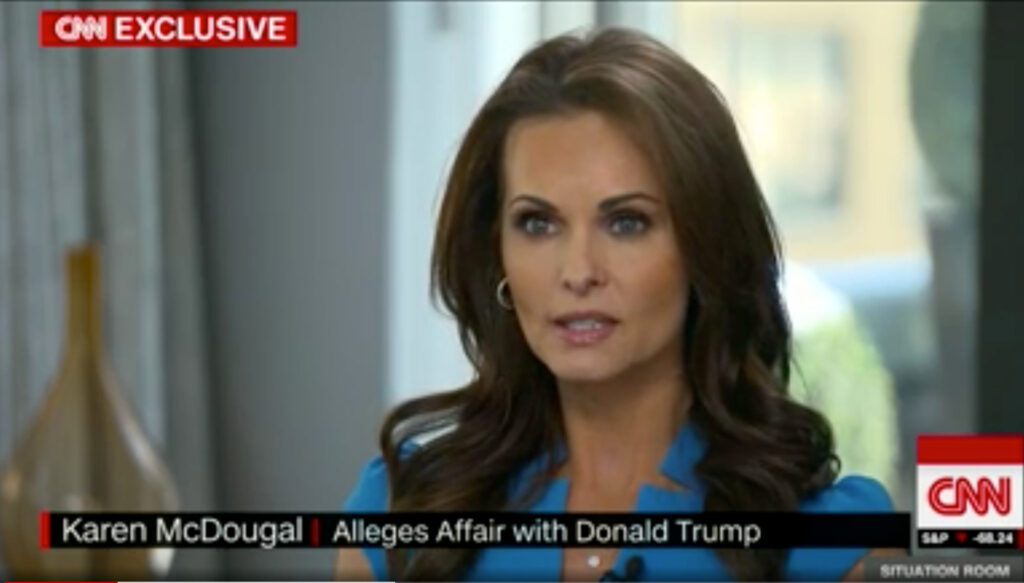
“Was it your primary purpose to buy the life rights?” the prosecutor, Joshua Steinglass, asked him. “Yes it was,” Mr. Pecker replied.
“Were the other provisions to disguise the true nature of this contract?” Mr. Steinglass pressed his witness. “Yes,” Pecker said, lowering his head to a sigh. Ms. McDougal never wrote any fitness columns for the Enquirer or wrote about her breast implant removal.
Asked, by Mr. Steinglass, if Mr. Trump had wanted to bury the alleged affair to protect his wife, Melania Trump, and his family, Mr. Pecker said, “Prior to the election, if a negative story was coming out with respect to Donald Trump and we spoke about it, he was concerned about Melania Trump and [his daughter] Ivanka, what the family might hear or say about it, whether it was true or not.”
But Mr. Trump changed, Mr. Pecker said, when he became a politician. Mr. Trump no longer discussed what Melanie would say, or “what Ivanka would say or what his family would say, but the impact it would have upon the election,” Pecker insisted.
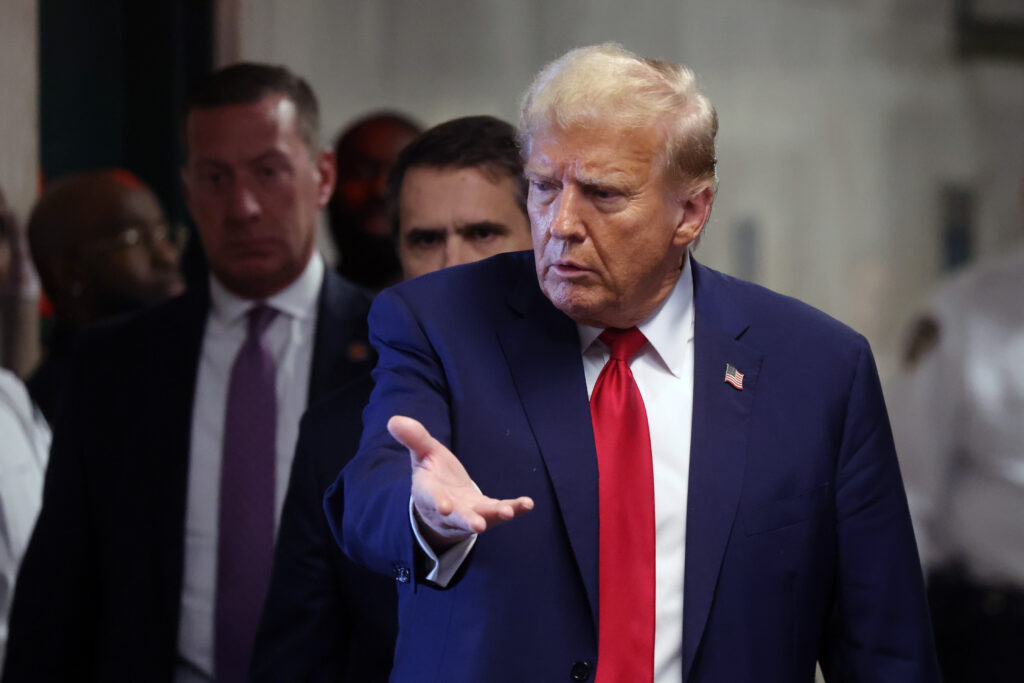
“Do you know someone by the name of Stephanie Clifford?” Mr. Steinglass asked his witness.
Stephanie Clifford is the legal name for Stormy Daniels, the pornographic performer and director whose claims are at the heart of the case that Manhattan district attorney has brought against Mr. Trump. He has charged the former president for falsifying business records. According to Mr. Bragg, Mr. Trump reimbursed Cohen after he gave a $130,000 hush-money payment to Ms. Clifford to keep quiet about a onetime sexual encounter she claims to have had with Mr. Trump at a celebrity golf tournament at Lake Tahoe in 2006. He denies the charges and ever having had sex with Ms. Clifford. Mr. Bragg accuses Mr. Trump of covering up the return-payment to Cohen as legal expenses.
“Stormy Daniels is, or was, a porn star,” the former tabloid publisher continued. It was his editor in chief again, Mr. Howard, who approached him and informed him that Ms. Daniels was “trying to sell a story that she had a sexual relationship with Donald Trump.”
The jury was shown a series of text messages in which Mr. Howard wrote to Mr. Pecker that he felt “this story is true.”

Mr. Pecker didn’t want to dig into his pockets again. His company had already paid a former doorman who made up story that Mr. Trump had a child out of wedlock with his housekeeper, $30,000, and then there was the $150,000 for Ms. McDougal, for which Mr. Trump never reimbursed Mr. Pecker. Mr. Pecker said he was “not a bank.” And told Cohen he would have to pay for it himself.
Four days before the presidential election, on November 4, 2016, the Wall Street Journal published a story exposing the so-called “catch-and-kill” scheme between Mr. Pecker’s Enquirer, Mr. Trump and his former “fixer” Cohen.
“Donald Trump was very upset, saying, ‘How could this happen, I thought this was under control,'” Mr. Pecker testified. “He was very agitated. He couldn’t understand how this could happen, and the call ended up very abruptly.”
Mr. Pecker said he immediately released a statement denying the story.
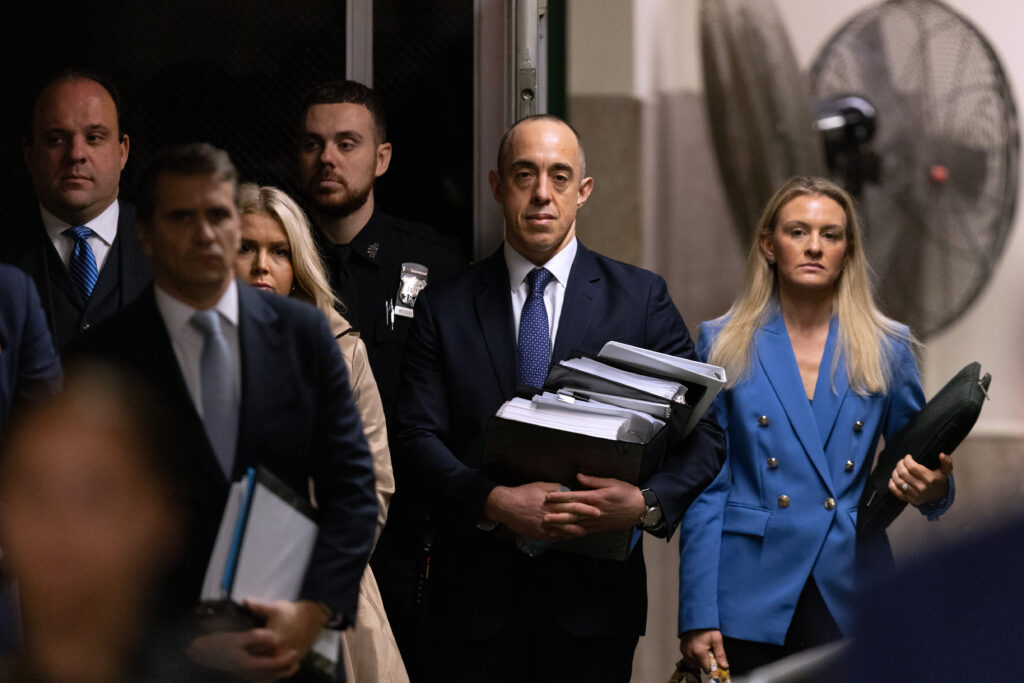
“Was that the truth?” Mr. Steinglass asked rhetorically.
“No, it was not,” Mr. Pecker answered, explaining, “I wanted to protect my company, I wanted to protect myself, and I wanted also to protect Donald Trump.”
After the election, Mr. Pecker released Ms. McDougal from her agreement, and when Mr. Trump saw her appear on CNN with Anderson Cooper describing her affair with Mr. Trump, he was furious. Shortly after that Ms. Clifford, too, made an appearance on television.
Mr. Pecker testified that Cohen had paid that hush-money out of his own pocket, and Cohen was worried Mr. Trump would not reimburse him for it, nor give him the yearly bonus from the Trump Organization he was supposed to receive annually.
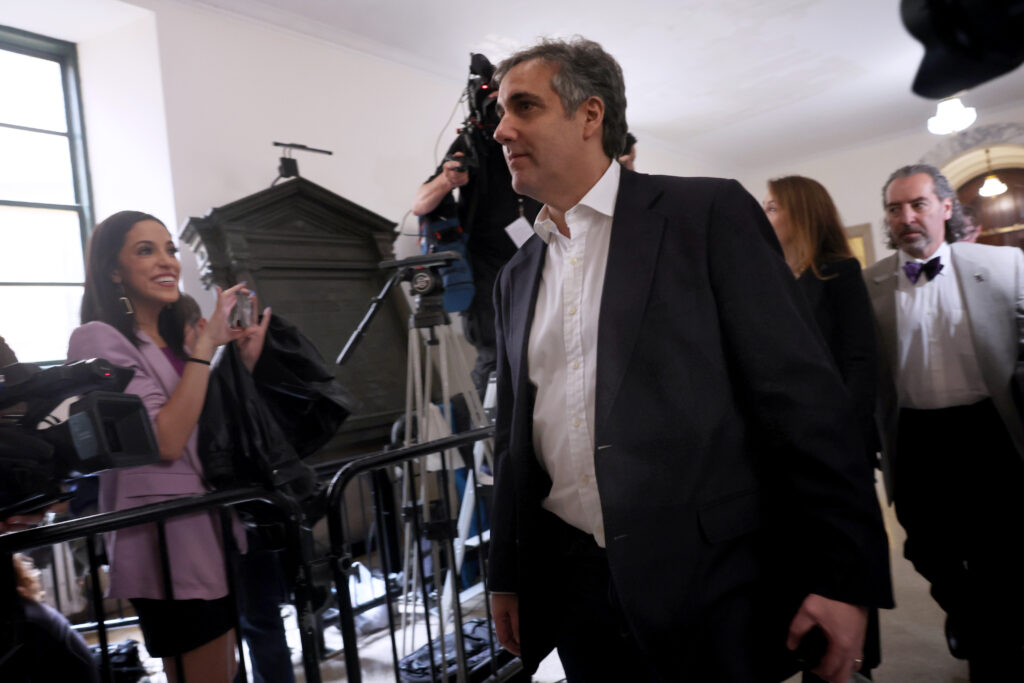
Cohen “asked me to talk to the boss on his behalf to try to help him get his bonus,” Mr. Pecker told the court, always referring to Mr. Trump when he said “boss”. But when Mr. Pecker brought up the issue with the boss, Mr. Trump said that Cohen had several apartments and taxi medallions, which were worth some money. Mr. Trump said, “Don’t worry about it, I’ll take care of it,” Mr. Pecker testified.
Despite all the revelations, Mr. Pecker ended his testimony for the prosecution by saying that he still considered Mr. Trump a friend.
“I felt that Donald Trump was my mentor. He helped me throughout my career,” Mr. Pecker told the court, adding that Trump reached out to help after one of Mr. Pecker’s employees, Bob Stevens, died from an anthrax attack in 2001.
“The first person who called me if I needed help was Donald Trump, and he was very helpful,” Pecker concluded.
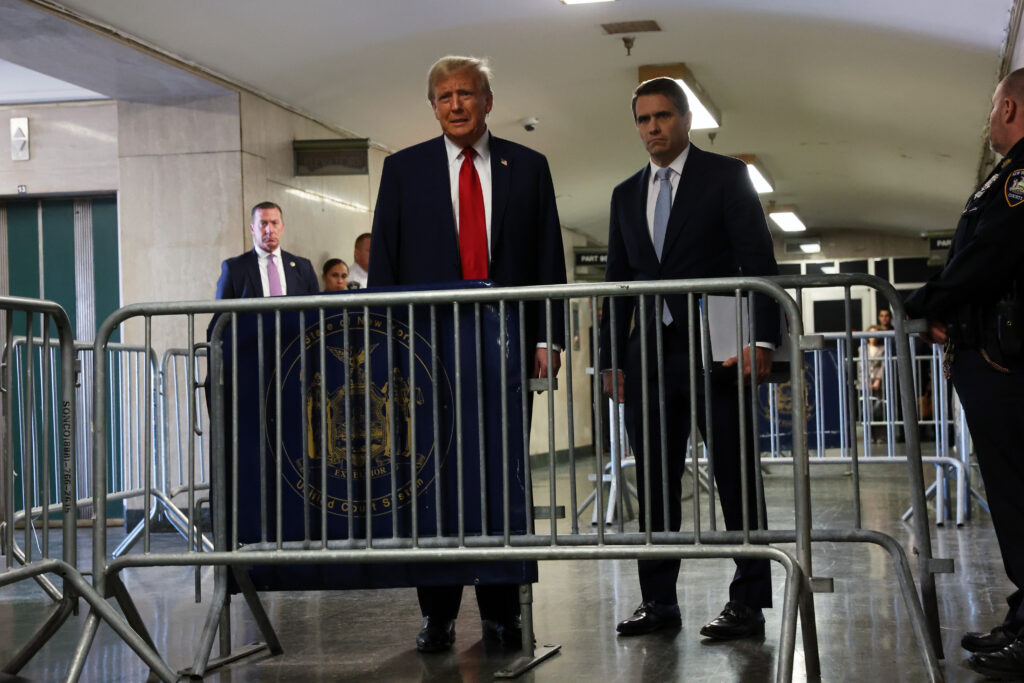
But then it was the defense’s turn to cross examine the witness. One of Mr. Trump’s attorneys, Emil Bove, asked Mr. Pecker if he was “aware many politicians work with the media to try to promote their image?” Pressing further, he asked, “That’s standard operating procedure?” Mr. Pecker agreed. Mr. Bove insisted yet again, “And sometimes when politicians are doing that, that is to try to win elections?” He waited for Mr. Pecker to agree, then added, “Nothing wrong about that?”
Mr. Bove opened his cross examination by returning to a story, Mr. Pecker had told the prosecution earlier, a story about Arnold Schwarenegger. Before Mr. Schwarenegger announced he was running for governor of California in 2003, he asked Mr. Pecker if he could be an editor at large for one of his fitness magazines, and also told him, “I would like you not to publish any negative stories about me now or in the future.”
In the morning, Mr. Pecker had testified that after Mr. Schwarzenegger made his campaign announcement, “a number of women” called with stories about Mr. Schwarzenegger, stories about alleged affairs and also about alleged sexual harassment.
“The deal that I had — the agreement I should say — that I had with Arnold was that I would call and advise him of any stories that were out there. I ended up buying them for a period of time,” Mr. Pecker told the jury.
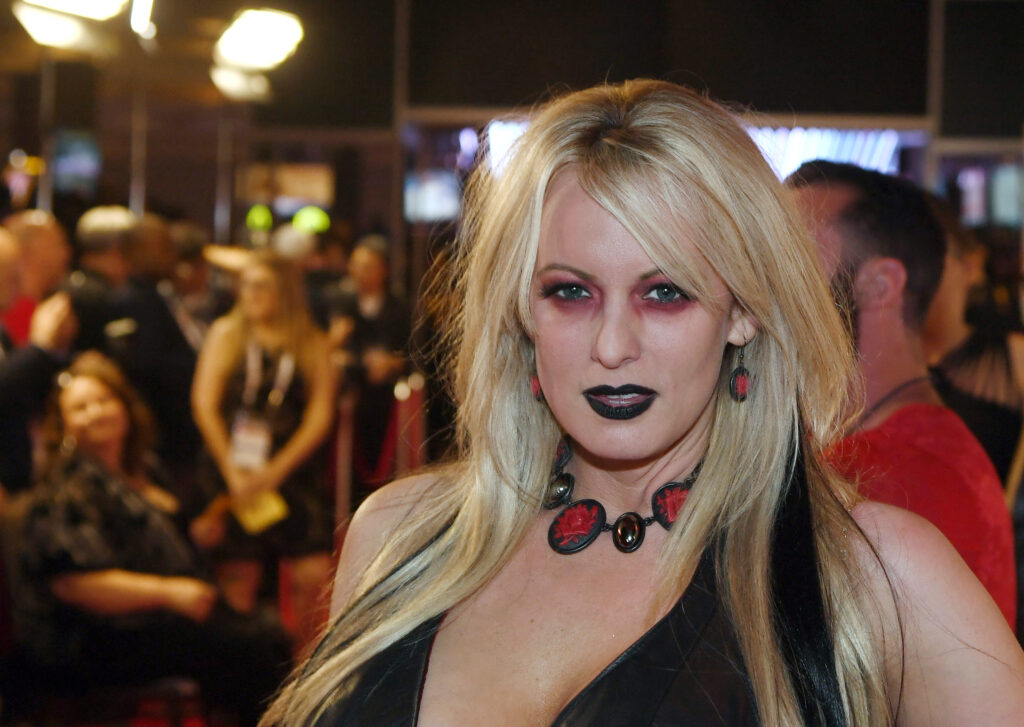
But Mr. Bove now corrected the amount of stories Mr. Pecker had bought. There weren’t just a few stories, the defense attorney said, there were between 30 or 40 women who ended up getting paid by American Media, the Enquirer’s parent company. Mr. Pecker nodded and and confirmed that he spent “hundreds of thousands of dollars” for stories from women about Mr. Schwarzenegger.
“And Mr. Schwarzenegger never paid you back for that?” Mr. Bove asked the witness.
“No, he didn’t,” Mr. Pecker answered.
Mr. Pecker also answered questions about his attempt to force Tiger Woods into doing an interview for his AMI fitness magazines by buying a negative story about him and threatening to use it against him.

